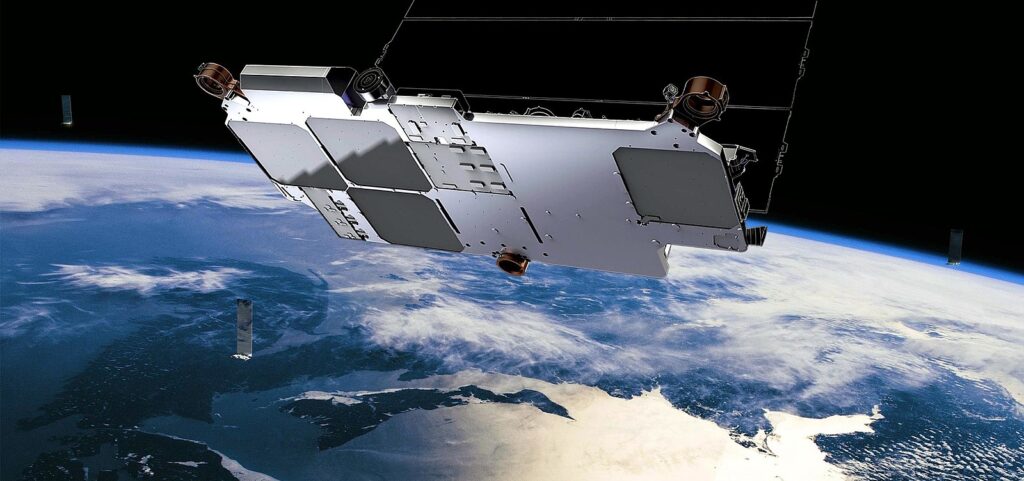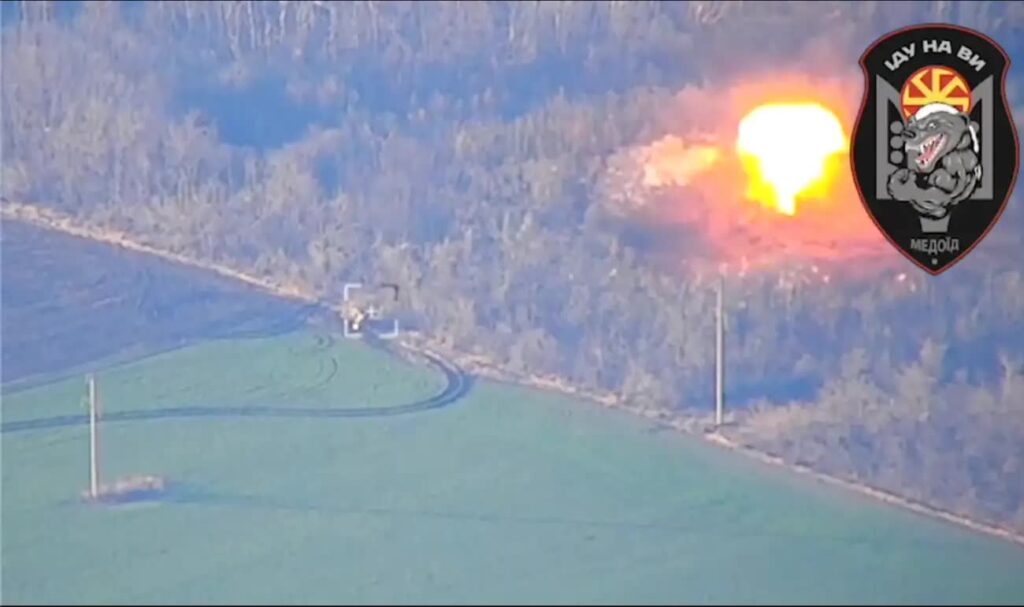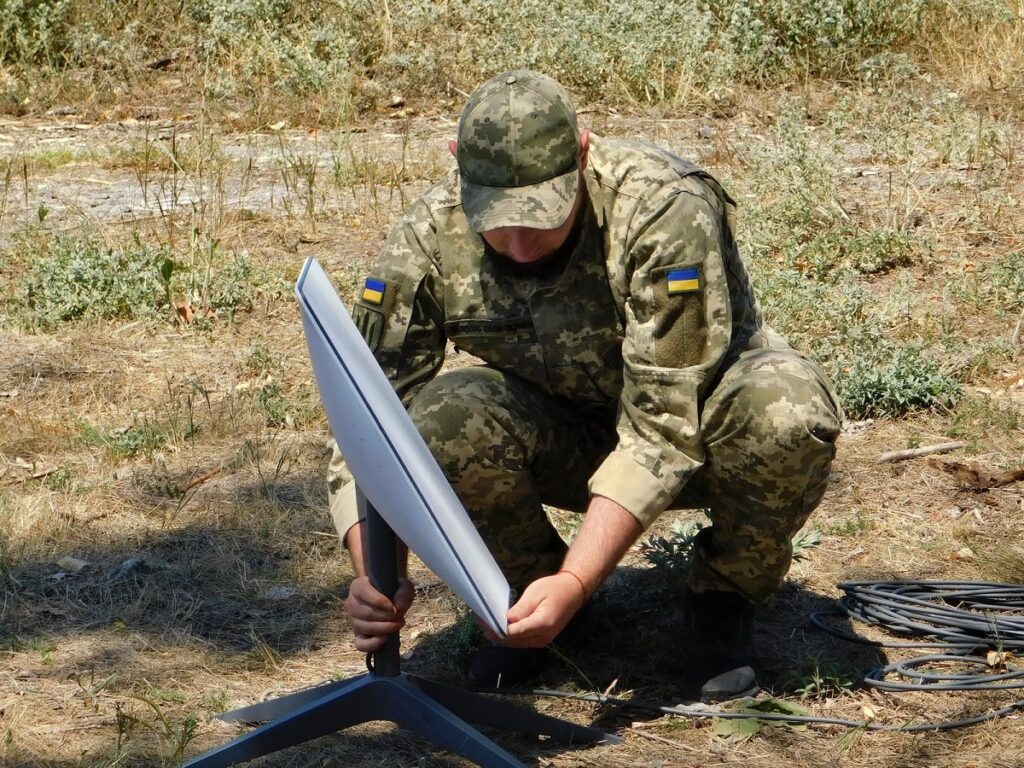This article by Thibault Spirlet was originally published by Business Insider.
Russia is trying to cut off Ukraine’s access to Elon Musk’s Starlink satellites, according to space-warfare analysts.
Since the start of the war, Russia has been using jamming systems to try to deny Ukrainian forces access to commercial satellites.
It has attached jammers to its tanks to interfere with satellite signals and disrupt exploding drones, jammed Ukraine’s GPS-guided bombs, and jammed Ukrainian drones, forcing Ukrainian operators to move closer to their targets on the front lines.
Access to satellites, notably access to Musk’s satellite network, has played a critical role in Ukraine’s defense against Russia.
Satellite internet kept Ukrainians online and their businesses running during the war. It’s also made it easier for soldiers to communicate on the front lines and for weapons systems and drones to function.
At the same time, Russia’s jamming has become increasingly better at disrupting Ukraine’s most advanced weapons, hindering Ukraine’s fighting capacity.
But Russia’s efforts to cut off Ukraine’s access to Starlink satellites have failed thus far, space warfare analysts said.
Jam-proof signals
Brian Weeden, the chief program officer for the nonprofit Secure World Foundation, told Business Insider: “Russia absolutely would like to find a way to negate Ukraine’s use of Starlink. But that is much easier said than done because of the architecture of the constellation.”
Starlink’s signals are stronger and more concentrated because its satellites operate at a far lower altitude than geostationary satellites, Starlink’s website says.
Because Starlink satellites are closer to Earth, latency – the delay between a user’s action and a network response – is shorter. This speeds up streaming, online gaming, video conferencing, and other activities
Weeden said that Starlink’s signals are much more difficult to jam in the context of electronic warfare. That means Russian hackers haven’t been able to hack Starlink so far, he added.
While there is “very little” open data about Russia’s electronic attacks on Starlink, Weeden said its efforts don’t appear to have yielded much success.
Kari Bingen, the director of the Aerospace Security Project and a senior fellow in the International Security Program at the Center for Strategic and International Studies, said: “They keep trying, but they don’t seem very successful.”
She said Starlink satellites are both “resilient” and “agile,” with Starlink operators constantly updating their software to overcome Russian attacks.
Striking satellites

The Counterspace Timeline by the Aerospace Security Project data says Russia has tried to approach, target, or infiltrate foreign satellite networks several times since its invasion of Ukraine began.
On the first day of the invasion on February 24, 2022, Russian hackers launched a cyberweapon against Viasat, an American satellite-communications provider offering military-communications services to Ukraine.
The attack hit a large number of satellite-communication stations and affected hundreds of thousands of people in Ukraine and Europe.
A U.S. assessment of the cyberattack found that Russia launched cyber strikes against commercial satellite-communications networks to disrupt Ukrainian command and control during the initial invasion.
In March 2022, Finnair reported several instances of GPS jamming when its planes neared Kaliningrad, Russia, Reuters reported.
At the time, Finnish President Sauli Niinistö met with President Joe Biden to discuss strengthening defense ties between Finland and NATO in response to the Ukraine invasion.
SpaceX, which owns Starlink, also came under attack in April 2022. Its engineers fought off Russian jamming attacks by updating the system’s software, an unnamed Pentagon official told Business Insider at the time.
In a post on X a month after the attack, Musk said Starlink has “resisted Russian cyberwar jamming and hacking attempts so far.” But he also said Russian hackers were “ramping up their efforts.”
No other Russian jamming or hacking attacks against Starlink have been reported or made public.
SpaceX declined to give BI updates on Russia’s jamming or hacking attempts on its Starlink satellites.
Related: Spy satellites aren’t nearly as all-seeing as you think
Russia’s growing arsenal
Russia’s been developing an arsenal of electronic-warfare systems aimed at jamming communication satellites, Space Watch Global reported.
The outlet reported that these are R-330Zh Zhitel, a mobile truck-mounted jamming-communication station, and Bylina-MM, a system designed to suppress communications satellites.
They have truck-mounted antennas that transmit high-power signals to saturate all the receivers tuned into Starlink frequencies.
Another is the Krasukha-4 mobile EW system, which can counter airborne early warning and control systems and other airborne radars within a range of about 186 miles, Space Watch Global reported.
According to a leaked U.S. classified-intelligence document obtained by the Washington Post last year, Russia has been testing its Tobol electronic-warfare systems for several months, hoping to obstruct Starlink’s signals.
Russia also has a wide range of counter-space weapons, including direct-ascent anti-satellite missiles and powerful lasers that can destroy satellites in orbit.
Related: Watch: Ukrainian M2 Bradleys take out advanced Russian T-90 tank
Ukraine strikes back

Ukraine has been targeting them. Last July Ukraine’s special forces appeared to destroy a Tirada and a “Leer-2” electronic system with drones in a video shared by the command of the forces.
In November, Ukraine’s military reported destroying multiple Russian systems including a “Pole-21” electronic-warfare system and a Svet-KU.
As recently as January, the same special forces said they helped destroy a Russian Tirada-2 – a portable radio-electronic suppression system designed to interfere with communication satellites – that was blocking satellite communications in eastern Ukraine.
Read more from Business Insider
- Video appears to show Ukraine’s new ‘Ironclad’ drone vehicle firing on a Russian position
- Ukraine should give its soldiers weed instead of opioids so it can avoid a US-style drugs crisis, doctor says
- Ex-Wagner mercenaries may be heading back to Ukraine, but this time with Russia’s National Guard, intel says
- Top general says Ukraine must adapt to distracted partners and the possibility of less support and look to technology
- Ukraine’s experimental ‘FrankenSAM’ weapons reveal a huge gap in the US arsenal, military expert says




